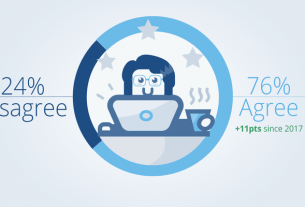The future of work lies in independence. It seems that everywhere you look these days, the “gig economy” is flourishing. It’s estimated that 35% of the workforce freelance, and that number is expected to keep growing. As the CEO of an on-demand accounting services startup, I am very familiar with the topic of independent contractors, as they are a core element of our company’s success and growth. As an independent contractor, you’re performing work for a company or entity as a non-employee. Whereas an employee is contractually bound to the company they work for, the same cannot be said for an independent contractor. Likewise, while employees have their taxes withheld and certain benefits covered by the company they work for, freelancers are paid in full and handle their tax obligations on their own. The Perks Of Freelancing Working as an independent contractor has its pros and cons. These are perks to consider as you think about making the leap toward the freelance life: • You are your own boss. The most popular perk to working as an independent contractor is freedom. Your clients are able to make demands based on the type of work you’re doing, but the relationship is a far cry from your typical employee-manager dynamic. As an independent contractor, you are in charge of yourself. • You have complete control over your finances. As an independent contractor, you’ll typically charge a fixed rate per project or deliverable — this means you’re able to have much more control over your personal finances than if you were working for an employer. Likewise, because you work for yourself, you may be able to earn more than you would in a traditional setting. • You can choose when and where you work. Working as a freelancer or independent contractor comes with the added flexibility of managing your schedule on your own. Rather than being tied down to your work schedule as dictated by your employer, you’re able to spread your work as you see fit — which is especially beneficial if you find you are most productive outside traditional business hours. The Challenges Of Freelancing Though freelancing can be beneficial, there are some downsides to keep in mind: • Limited job security. Full-time employees enjoy more stability, including consistent paychecks and work. The same cannot be said of independent contractors. As you are your own business, the arrival of your paycheck is entirely reliant on finding and completing work. • No employer-provided benefits. Whereas employers typically provide their employees with health insurance and paid time off, as well as other benefits, when you work as an independent contractor, you handle these details on your own. Time lost due to vacations or being sick is up to you, but it ultimately affects your bottom line. • More responsibility with payment. As an independent contractor, you are required to collect payments from your clients on your own. You might run the risk of running into clients who avoid paying you for your […]




